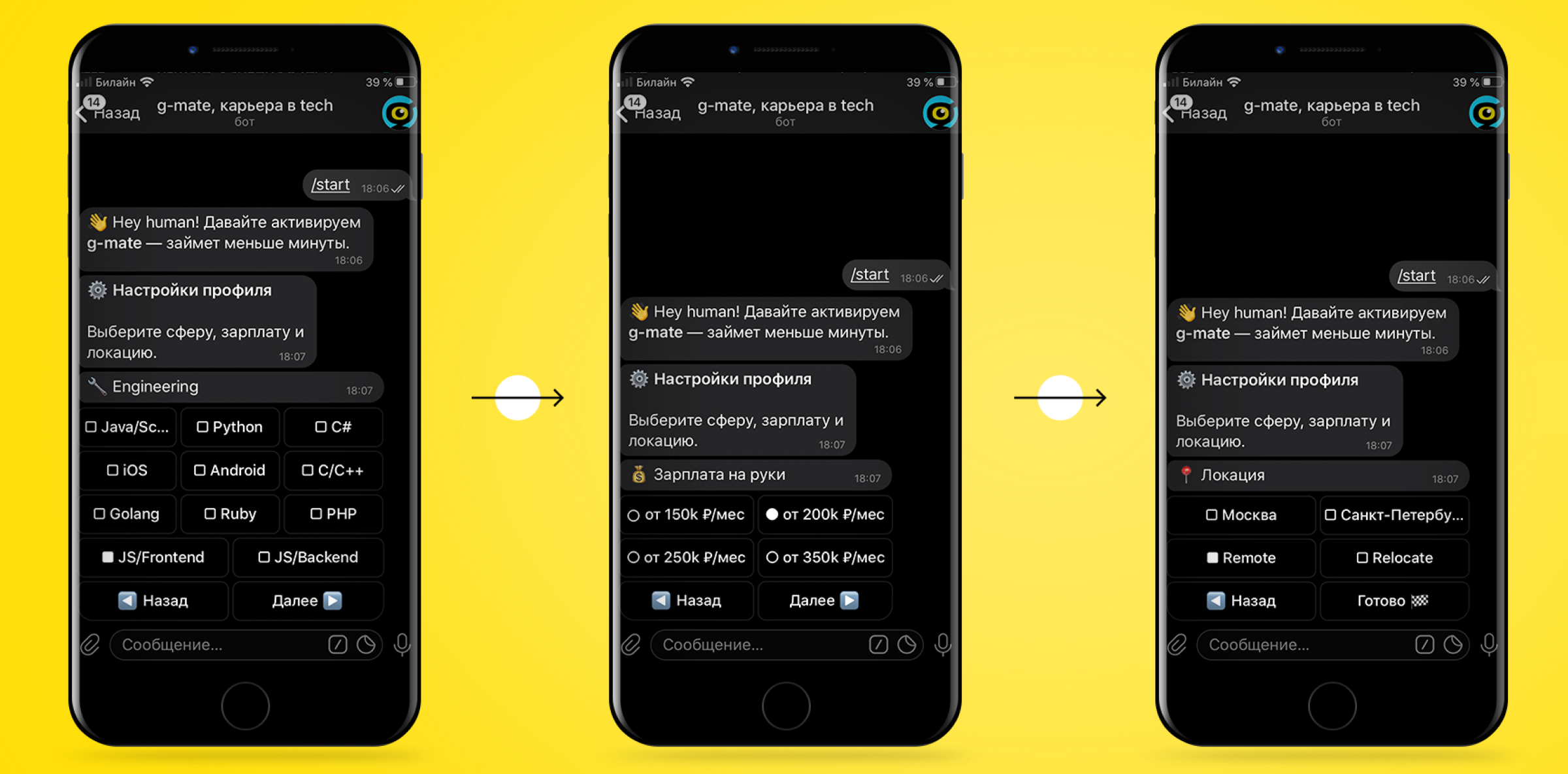
Hello everyone, my name is Nastya, and for several months now I have been working at Google in London. This time turned out to be extremely eventful: moving, immersion in a new environment, and then quarantine and massive remote work. But first things first.
How I moved: starting the process, interview
It all happened largely by accident. I quietly worked as a Data Scientist in IT companies in Moscow, but I had a friend who got a job at Google and moved to London. It was she who came up with the idea that I should send my resume. I thought it was a good opportunity to practice interviewing in English, see how everything works. That is, I wanted to try and get a new experience, nothing more.
There was no certainty that I would be hired - I was more likely at the beginning of my career, my experience was less than three years. At the same time, the career path in Moscow was already clear, but I wanted some kind of challenges, and the opportunity to pass an interview at Google turned out to be just such a challenge.
How to get an offer with relocation to London? You can search for a job yourself, or you can subscribe to vacancies with relocation in our bot @ g_jobbot . It is easy and quick to set up: scope, salary, relocation location. The options that suit you will come to Telegram.

The employment process was like this. First, I found jobs that were suitable for me at careers.google.com, then my friend helped me apply using the company's internal portal. Then there was silence, which lasted about two months. As a result, the HR manager wrote to me, I went through a basic telephone screening. Then the interviews began.
First, I was considered for the position of software engineer. For her it was necessary to go through an online coding challenge - you can choose any programming language, I chose python. It's inconvenient that you need to write code in Google Docs, for which this tool, frankly, is not suitable. At this stage, it is important not only to silently write code, but to tell the train of your thoughts. As I understand it, it is important not only to solve the problem, but to show exactly how you think. So by this time it is already important to have more or less good English - it was not easy to process both the decision and the foreign language at once, although I was quite actively pulling up the language.
To my surprise, I solved the problem, and a couple of days later I received an invitation to an onsite interview. Initially, it was not even about London, it was assumed that in case of success, I would work in Munich, so I went there. The company paid for the tickets, booked a hotel near the office, where I checked in the day before the interview.
On the appointed day, I came to the office, and a series of interviews began. There were five of them for the software engineer position - four for coding and one for leadership, where soft skills are already tested.
Each interview is conducted by a new person. After three interviews, there was lunch - at this moment a company employee is also with you. After lunch, a soft skills interview took place, and then the most difficult thing to write code. This is very exhausting. If at the beginning of the day you are on adrenaline and ready for adventure, then by the end your head is no longer boiling, and your tongue barely turns over - you need to speak English all the time!
The interviews themselves follow a similar pattern - you are given a task, then you can choose whether to write the code on the board or on the laptop. I wrote the code on the blackboard: this is how you can walk, move somehow, it calms me down and helps me think. At the beginning, the tasks are simpler, and then they complicate them - and dramatically. And here stress already appears - a more difficult task must be solved in a small amount of time, it is scary not to be in time.
That is, there were no problems about square hatches and other brain teasers at all. Everything is pretty practical. The interviewers were interested in the train of thought and the effectiveness of the chosen solution.
The whole process lasted from 10 am to 15-16 pm. It was a very long and hard day.
What position did I end up in
For a software engineer job, I received mixed feedback from interviewers. In general, this position did not suit me very well. As a result, I was offered a vacancy for a cloud engineer - I wanted to do this much more, there is more variety and the opportunity to develop in an interesting direction for me. The interviews for this position were already completely online.
It was much easier, they asked about how I would solve some problems, how I would build the architecture of a specific service , there was a separate machine learning interview.
Moving process and adaptation to a new place
After I was approved, they sent me an offer. At this stage, it was necessary to choose the bonuses that are due to beginners. For example, among them, payment for the transportation of things, an apartment for the first time, or compensation for such costs in money. But I decided to take advantage of the bonuses, rather than take money - I didn't want to spend a lot of time looking for an apartment in another country. The company also paid for my English lessons for a year after starting work.
All preparation for the move takes 3-4 months - during this time the company draws up a work permit, collects documents for a visa. From my side, it was necessary to get an IELTS certificate - you need to pass at least 4 points out of 9, which is not so difficult.
The first month in London I lived in an apartment provided by the company. The company also gave me a realtor who helped me find my own home. The realtor is already selecting options and arranging a viewing - everything is done through agencies, there is no black market for rent in London. But competition among renters is wild and prices are high.
During the day I could see up to 15 apartments, while there were situations when we were already going to look at the apartment, and on the way it turned out that it had already been rented out. We were planning to rent an apartment together with my girlfriend. As a result, we had to compete with someone else for the apartment in which we now live - we outplayed only the length of the contract, two years instead of one.
It was a little worrisome - I just arrived in a new city and immediately signed up to commitments for the next two years. On the other hand, it is convenient to postpone the search for new housing for another year. The plus was that my friend had lived in London for a year and knew all the possible problems. So she immediately said that we will live only in a new house, and there are relatively few of them in the city. In the old houses it is very cold, everywhere very good audibility - in one of the apartments she heard not only what the neighbors were talking on the phone, but also what they were answering.

As a result, we found a suitable apartment for us, 20 minutes by metro from the office, although due to quarantine I did not go there a lot. How many apartments in Europe are measured by bedrooms - we have two bedrooms and we also have a living room. That is, by Russian standards, this is a three-room apartment. Rent is £ 2,200 per month plus utilities and internet. Now the market has dropped a little, maybe we could have rented it cheaper, but I don't know for sure.
What to expect in the office, Google culture
First day at the office - brain break. You don't work that day. The company gathers all newcomers and conducts several seminars. They tell you about the company, culture, office infrastructure, organizational issues (bank accounts, insurance, etc.). There is a lot of information, it is very difficult to digest it right away, your head swells, you start to be afraid to forget to do something.
When you are given access to mail, the mailbox is already filled with a bunch of letters that need to be parsed. If someone like me loves order in inbox, this is seriously disturbing. It took me a while to clean it all up and adjust the filters.
All colleagues are very friendly, constantly offering help. People understand that moving to another country, to such a huge company is difficult, and there is a lot of information. I do not work in the largest London office of Google, and there are not many Russian-speaking employees here, so I had to speak mostly in English. But in the largest office on Kings Cross, the situation is different, where Russian speech can be heard regularly.
After the move, it is tempting to communicate more with Russian-speakers - this creates a kind of comfort zone. I decided in advance that I would try to communicate with foreigners too, in order to join the culture, to tighten my language. But Russian speakers are always attracted, plus at first the emotional load is so great that in the evening I didn't even want to leave the house. And then the quarantine made adjustments to my plans for international communication.
In general, Google culture is exactly what I needed at work. Everyone here supports each other, there is no toxicity, everything is very calm. In such an environment, you feel protected and can develop effectively.
Not to say that I had some problems with colleagues in Russia, but the culture of communication is still different. For example, on Google, I can't imagine a situation when on code review you read the comments of colleagues on your code, and your mood gets spoiled. Everything here is super-respectful, although there are probably exceptions everywhere, but I have not come across this.
Leisure, entertainment, travel
London is a huge metropolis where you can find any activity you like. For example, I went to drawing classes - I was doing this as a child, and then I decided to brush up on my skills. It is interesting and provides opportunities for communication with new people.
As for travel, the island itself is not so big, and you can get a lot of places even without a car. For example, I managed to take the train to Oxford, Bristol - I really liked the atmosphere there, plus a lot of my favorite bands from there.

White Cliffs of Dover

Graffiti Banksy in Bristol
Conclusion: 5 practical tips
Finally, here are a couple of tips that will definitely help make the move process less painful:
- You need to study English as much as possible, preferably with a native speaker.
- – , Google, .
- relocation bonus , ( ) – , .
- – : , , . , .
- – , , , .
g-mate (@g_jobbot), , , Telegram. 3 — .
:
- Uber : , ,
- : , ,
- : ,
- : ,
- : , ,
- : « », ,
- : ,
- Amazon vs Microsoft: -